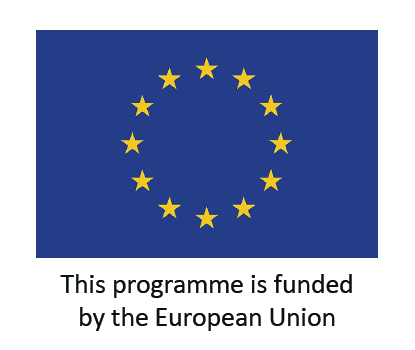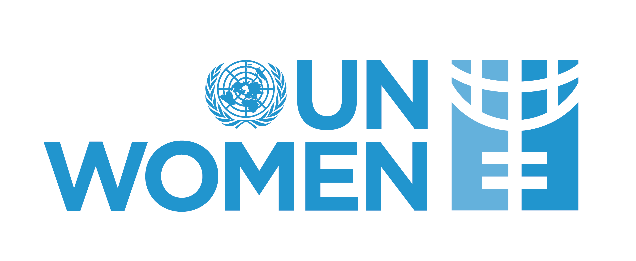Hotline: +381 61 63 84 071
“Women deserve to receive trustworthy, timely, proactive and non-judgmental services”

Piroshki photo
Interview: “Women deserve to receive trustworthy, timely, proactive and non-judgmental services”
Jelena Hrnjak is a programme manager at Atina NGO. Since 2003, Atina has been supporting girls and women human trafficking and gender-based violence survivors and is a licensed provider of assisted housing services. Under the UN Women regional programme “Implementing Norms, Changing Minds,” funded by the European Union, Atina has mapped and analysed existing support and protection services for domestic violence survivors in shelters in Serbia. In this interview, Hrnjak shares insights on the most pressing needs and challenges in providing shelter services and outlines key recommendations to secure adequate support to women fleeing violence.
What are the main needs and challenges to providing and accessing shelter services?
Since the beginning of 2022, and especially during the summer, femicide has been on the rise in Serbia. You can't help but wonder whether these women would still be alive if the system for their protection had reacted adequately and by the law, and if society had supported the women instead of condemning them to the downfall. You can't help but ask yourself would the outcome change if the system had worked efficiently, especially in terms of enabling timely and adequate safe accommodation, and having competencies that could make women feel secure and provide them with a nonjudgmental and supportive approach that is essential to them. These are some of the reasons why NGO Atina, with the support of the UNWOMEN office in Serbia, started to analyze the functioning and operations of existing safe houses in the country.
Difficulties in access to safe accommodation of women victims of violence in the Republic of Serbia arise from the very way in which they are functioning. Accommodation is inaccessible for many women, sometimes because of the requirements in terms of the documentation a woman must provide, which is not the first thing on her mind when running away from a violent partner. Access is also difficult for women with disabilities, as well as for women who are part of the ostracized groups. Women are also at risk of not receiving suitable support, primarily when it comes to those with mental health challenges, those that have problems with PAS, migrant, asylum seeking and refugee women, Roma and LGQBT+ women, etc. There is a lack of sufficiently trained staff; no medical services exist within the houses, nor interpreters or psychotherapists/counselors, and the like. Children who are housed with their mothers could find themselves in a helpless situation, since there are no programs that are unambiguously intended for children. There are also no clear age criteria when it comes to accepting children into the safe houses, which could prevent women from using this service. However, the lack of housing options is one of the main reasons why victims don't have another solution but to stay with, or go back to, their abusers. Therefore, ensuring widespread access to safe housing to all victims of domestic violence should be a priority to defend the rights of women and children. If it is not possible to detain the perpetrators, housing can be considered the first step towards freedom for many victims of domestic violence, and its importance must not be underestimated.
What are the most important findings from the mapping analysis?
Having in mind that most of the safe houses in Serbia are working without permits, it seems that the licensing process has only further complicated an already difficult situation, as these safe houses are unable to meet basic standards, and there is no political will to discuss what would be realistic and rational steps to make in future. A total of thirteen safe houses for women victims of violence, and one for victims of human trafficking, operate on the territory of the Republic of Serbia, and of that number only 5 have a working license, 2 are in the process of renewing their license, while 7 safe houses have submitted a request for issuing a license. Also, the biggest hindrance is the question of who is responsible for the functioning of these safe houses - national level institutions, local self-governments or centers for social work - mainly due to the constant shifting of responsibilities among them.
The number of available beds in the territory of the Republic of Serbia is 74% lower than the prescribed EU standard. Of the 190 available beds, 10% are not operational for various reasons. There are no security plans made, and neither employees nor beneficiaries feel safe, so the question arises what the community should do to make them feel safe and how to prevent the location of safe houses from being jeopardized by the perpetrators. In 64% of safe houses, there is no adapted access for women with disabilities, while none of the shelters have the appropriate equipment to accommodate women with sensorimotor difficulties. Also, 82.6% of shelters do not have protocols and procedures for taking care of the cases of reported sexual violence, which is for sure one of the main tasks to be resolved in the future. The safe houses’ employees, who were interviewed for this analysis, recognize the biggest challenge in access to medical support during the reception and adaptation phase, lack of developed cooperation and protocols with local health institutions and clear internal procedures that would be aimed primarily at eliminating the immediate consequences of violence, then documenting the injuries for evidence in the court proceedings, and the access to health care while staying in a safe house.
Beside these findings, the analysis has also shown that some of the safe houses are fostering promising practices, such as creating closer connections with various stakeholders within the community; some of them also work a lot on nurturing the principle of continuous care and follow up of women who left safe houses. Some of the local communities succeeded to build Local violence reporting mechanisms and community referrals, and some have an extensive and efficient cooperation with the civil sector in the community.
What are the most important recommendations from the analysis?
Serbia is not currently following the standards of the Istanbul Convention regarding safe housing for the victims, and this is something that must be changed in the near future. We in NGO Atina believe that the most essential recommendation is to ensure the access and safety of the women and children during their stay in the safe house through a women-centered approach. Safety is also to be ensured through trustful, timely, proactive and non-judgmental service provision, and securing a space that is encouraging and open to all women. The capacities of staff should be raised to better assess security risks, and address women’s fears together with them. It is also necessary to create internal procedures and actively work with the community to build a sense of inviolability of safe accommodation for women and children, without taking away the woman’s agency and responsibility for their own safety. It is necessary to ensure access for all women victims of violence, and especially those who use safe accommodation services, to health care, psychological support and economic support in order to completely exit the situation of violence and dependence. Also, it is necessary to secure funds from the Republic of Serbia budget for the reception of women from disadvantaged groups in safe houses. It is necessary to create and apply protocols that guarantee priority in terms of health examinations of victims of violence, which will be available 24/7 and prioritized. Working on deconstruction of stereotypes and prejudice of staff is essential as well. A set of tests should be created to assess the knowledge and capacities of potential employees in the safe houses, which would clearly indicate their skills of active listening, openness for different experiences they may encounter, and altruism.
Also, on the territory of the country, only one non-governmental organization runs a licensed safe house for women victims of domestic violence, which completely nullifies the role of women's civil society organizations and, most of all their knowledge and experience in providing support and assistance for women victims of violence. Even if the Istanbul Convention states that women-only safe accommodations managed by women’s organizations are the best way to support victims of domestic violence, this kind of development is not something that is being thought through in Serbia. Women’s safe accommodation is historically one of the most significant achievements of the feminist movement, and a way for women to support other women to escape male violence. Also in Serbia there is a need for a greater connection between safe houses and women's non-governmental organizations which is necessary in order to develop support programs for women victims of violence and successful exit strategies from safe houses.
Which recommendations do you plan to advocate for through your work?
There are two directions of thinking from NGO Atina’s side, one is connected to improved protection of children of victims while being situated in the safe house and another one is related to the role of women’s non-governmental organizations in this particular aspect.
As an organization that has, for the past 20 years, been providing safe accommodation support for victims of human trafficking, the most demanding part of NGO Atina's social workers’ job is to explain to the beneficiary’s child exactly where they are residing without destroying the idea of safety, belonging and certainty in the children's minds. Being able to escape a violent and abusive environment and reach a safe and empathetic one is vital for the development, health and safety of children themselves.
NGO Atina will offer its expertise through the mentorship and trainings to the staff employed within safe houses, and through developing a proposition of quality standards to ensure a victim-centered and integrated approach to the accommodation provided to domestic violence victims. These standards are to ensure a victim-centered and women-centered approach, safety, enough time and support to each woman in accordance with their specific needs in a particular moment, not just a bed, roof over their head, and assistance within the limited capacities that lack gender sensitivity.
Among the recommendations that require an institutional response, which do you consider the most pressing?
Currently the organization is working on creating the structural standards and criteria related to access to all women victims of violence, regardless of their civil-legal status, residence in the country, sexual orientation and other individual characteristics. This document will also consist of standards to ensure a women-centered approach to services that are tailor-made for women in need, and that should provide each woman in a situation of violence safety, enough time and support in accordance to their specific needs in a particular moment. These standards will also reflect on the necessity to define long-term support for women who leave safe accommodation, and will be shared with the Ministry of Labour, Employment, Social and Veteran Affairs shortly. The establishment of a Community of practice will be one of the priorities in the upcoming period both for NGO Atina and UNWOMEN, as one of the best ways to utilize knowledge and experience within peers. It will also serve to elevate standards of care in safe houses, as well as to design specific workshops and trainings in tackling specific issues (supporting women with the experience of sexual violence, refugee and migrant women and children) as skills necessary to mobilize community resources as well to build economic empowerment strategies within safe house facilities, etc.
Parts of this interview can be read at the UNWOMEN website link: https://eca.unwomen.org/en/stories/interview/2022/10/interview-women-deserve-to-receive-trustworthy-timely-proactive-and-non-judgmental-services
NGO Atina is implementing this project as part of the EU-UN Women regional programme on ending violence against women in the Western Balkans and Turkey, 'Implementing Norms, Changing Minds,' funded by the European Union.
This article was produced with the financial support of the European Union. Its contents are the sole responsibility of NGO Atina and do not necessarily reflect the views of the European Union, UN Women, its Executive Board or the United Nations Member States.














 FACEBOOK
FACEBOOK TWITTER
TWITTER YOUTUBE
YOUTUBE